We all love the rainy showers with the earthy scent of petrichor after a lengthy period of hot, dry weather. But our most cherished season also delivers some infectious diseases as we are tempted to have our favorite street food. Therefore, encouraging the danger of food poisoning during monsoon. Here, we are going to discuss how to manage food poisoning during monsoon. So, let me first brief you about what exactly food poisoning is?
Key Points About Food Poisoning

- It is also known as the food born illness.
- Food poisoning is a stomach infection because of contaminated, toxic food.
- It is responsible for gastroenteritis (inflammation of the lining of the gut).
- Causal agents for adulterated food are bacteria like E.coli, salmonella, and listeria, but salmonella food poisoning is the most common in the monsoon.
- Parasites and viruses such as Norovirus and Hepatitis A virus also responsible can be transmitted through food and accountable for the same.
Common Symptoms Of Food Poisoning
- Abdominal cramps
- Nausea and vomiting
- Diarrhea
- Headache
- Loss of appetite
Severe Symptoms Of Food Poisoning
- Bloody urine or stools
- Difficulty in speaking and seeing
- Fever may be more than 101.5
- Gastroenteritis is also one of the conditions caused by food poisoning.
- The particular risk population involved are children younger than 5 with not fully developed immune system and aged people 65 or above with weakened immune power and expecting mothers.
- The diagnosis is conducted based on your symptoms. In the case of severity, doctors recommend performing a blood test, stool test, and urine test.
Important Points To Manage Food Poisoning During Monsoon
1. Focus On Personal Hygiene

Monsoon is the season of plenty of infectious diseases; so, you must take care of the hygiene factor to get rid of germs. Wash your hands effectively with warm and soapy water for 20 seconds; it is a powerful weapon against germs. Washing and sanitizing hands is important during this pandemic situation too.
2. Rinse Fruits And Vegetables Properly
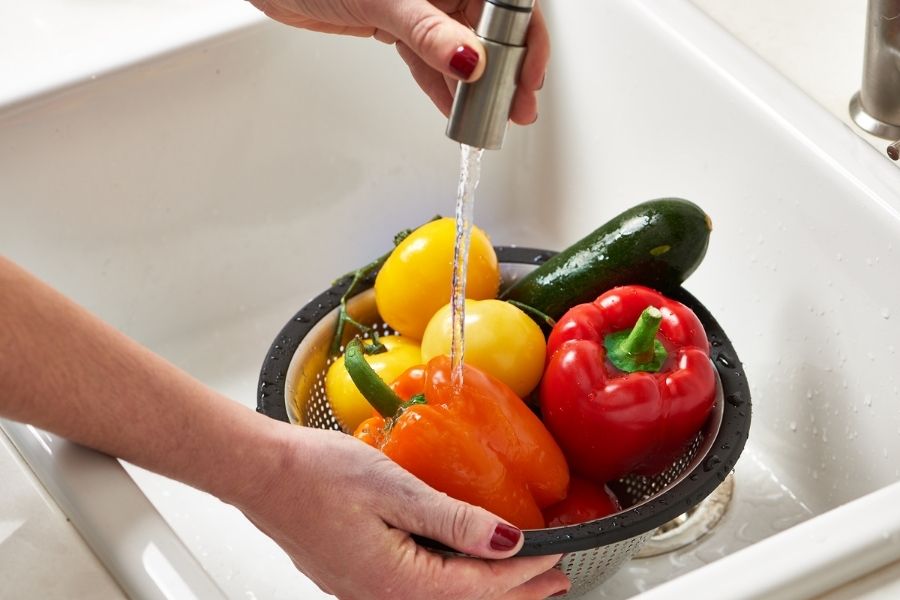
Washing fruits and vegetables are necessary. Rinse them under runny water thoroughly, followed by rubbing hands. These vegetables are the host of bacteria, fungi, larvae, and monsoon is the most favorable season to grow. Remember to wash cauliflower, spinach, and broccoli with salty water to remove harmful bacteria. Before cooking, wash and boil them to avoid the chances of food poisoning.
3. Don’t Eat Street Food

We usually crave for our favorite mouthwatering dishes like gol gappa, bhajiya, and many more, so the first victim of the season is our tummy during this pleasant weather.
Try to avoid gorging on street food as these foods are partially cooked. They promote bacterial growth. They are unhygienically prepared and kept in the open air; these things make you suffer from various diseases.
4. Avoid Eating Meat And Seafood
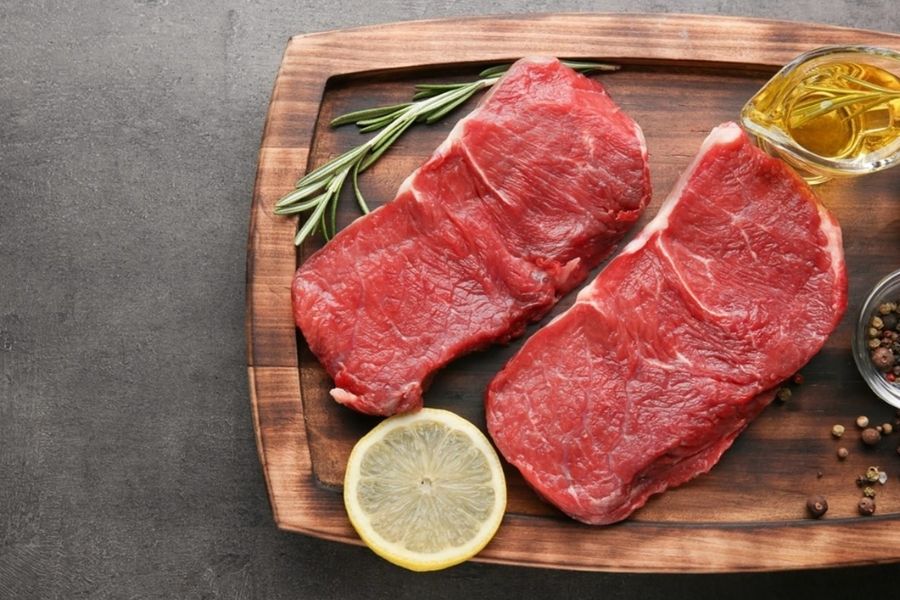
Monsoon is the breeding season for fish and prawns. Even at this time, fish folders can’t go to the deep sea, and you don’t get the very fresh in the market. Importantly, this is a carrier of water-born and food born illnesses.
Better to avoid red meat, too, as it makes your tummy heavy and causes digestive problems. If you feel an appetite for meat, switch on to hot chicken soups or stews as they are loaded with fibers, making your digestive system happy.
5. Avoid Eating Fried Food

This fried food is a tempting delight in this monsoon. It is ok to have it once in a week but take care of its proportion. Because too much yummy pakoras lead to stomach upset, acidity, diarrhea, bloating, and remember not to reuse the oil after frying, it might be toxic.
6. Don’t Consume Raw Food

Bacteria are mostly present in raw food. Also, uncooked food isn’t good for proper digestion. It also contributes to lowering the immunity of the body. So, make sure to eat thoroughly cooked and fresh food for your meals.
7. No Precut Fruits

Eat fresh fruits rather than opting for stored and preserved fruits and juices. They contain many more additives, which could raise the chances of health issues. Consumer Reports posited the rise in bacteria’s levels in the salad bags when they were tested.
Foods To Avoid If You Are Suffering From Food poisoning
- Dairy products
- Spicy foods
- Sugary beverages
- Alcohol
- Caffeine
- Leafy greens
- Egg
- Potato
- Tuna fish
- Tomatoes
- Sprouts
- Shellfish
- Berries
Dietary Recommendation To Manage Food Poisoning During Monsoon
The aim should be to have easily digestive food to relax your tummy while dealing with food poisoning.
1. Stay Hydrated

When a person suffers from food poisoning, diarrhea, and vomiting are supposed to happen, which results in losing electrolytes. To compensates loose, one must require to have oral rehydration salt. Also, sports drinks, coconut water, and homemade fruit juices make you energetic.
Decaffeinated teas with soothing herbs like peppermint, chamomile, etc., may calm your digestive issues. Other options, such as ginger or lemon tea, may help for the same.
2. Probiotics
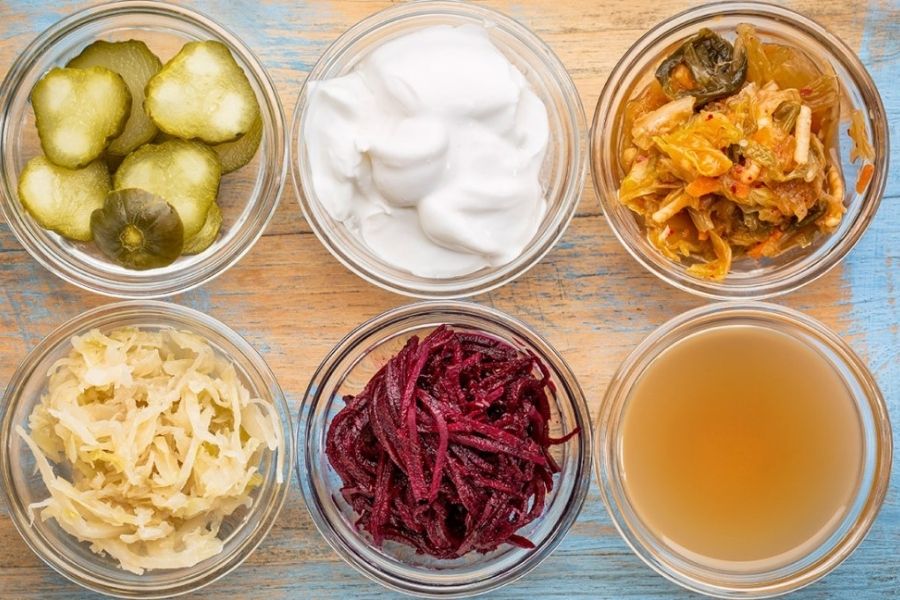
The most efficient way to replenish good bacteria’s loss is to include probiotics such as yogurt, fermented products, etc., in your meal. During food poisoning, the mining of your intestine gets damaged, and the amount of good bacteria decreases due to excessive diarrhea.
3. BRAT
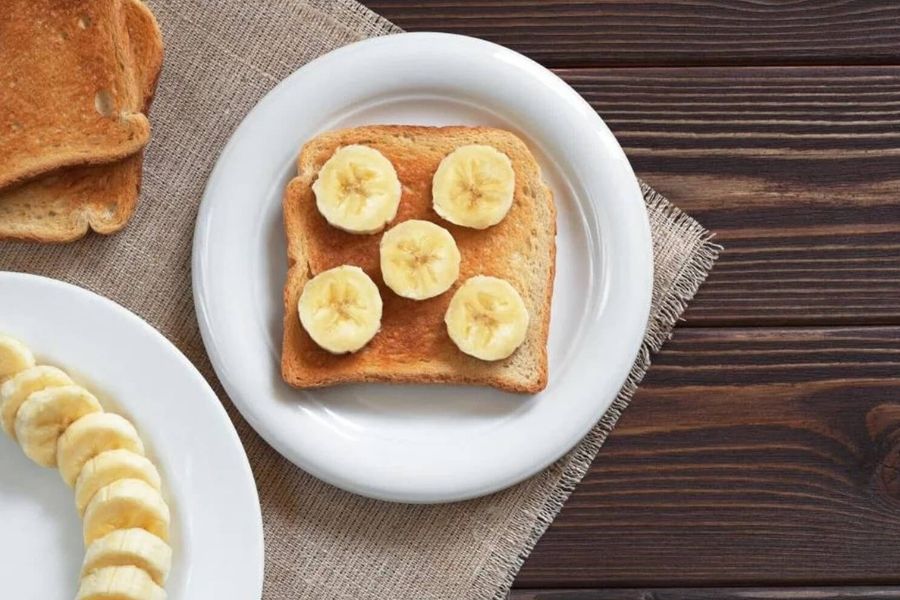
BRAT is an abbreviation for Bananas, Rice, Apple sauce, and Toast. It is a very effective dietary recommendation to recover from digestive illness. Why is it so? Because these four are loaded with a decent amount of starch, which helps in binding stool and reduces diarrhea frequency. Bananas have a good amount of potassium, too, that helps to restore the electrolytes.
4. Other Foods You Can Try
- Plain potatoes
- Low sugar oatmeals
- Baked chicken without skin
- Turkey
Homemade Natural Remedies To Manage Food Poisoning During Monsoon
1. Apple Cider Vinegar
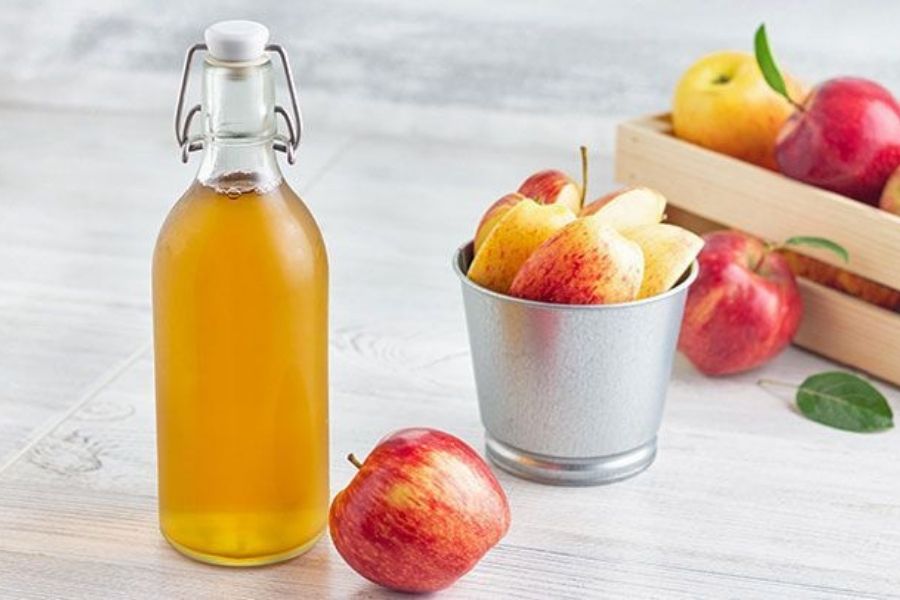
Apple cider vinegar is a powerful agent that helps to cure food poisoning, curing nausea, vomiting, etc. ACV has antimicrobial properties; thus, it destroys the E. Coli bacteria responsible for food poisoning. It provides relief to your gut and removes toxins that are responsible for food poisoning.
How To Use
Mix two teaspoons of ACV in a cup of hot water and sip it before the meal. You can use it undiluted too for a quick treatment.
2. Garlic
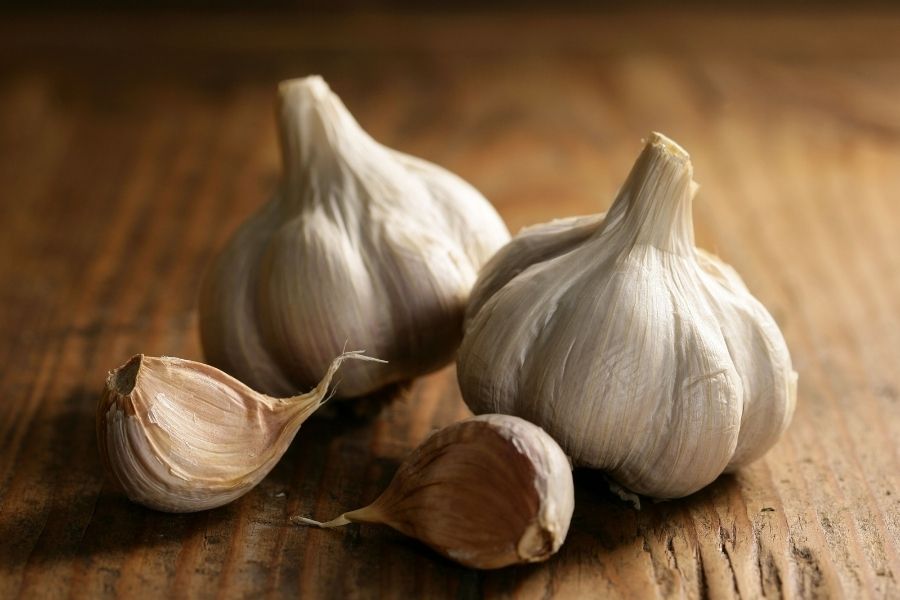
Garlic has 100 times higher antimicrobial potency to treat food-borne illnesses. Garlic improves your digestion again by balancing the pH of the GI tract and reduces inflammation. Its antifungal or antiviral properties treat food poisoning effectively. It helps in relieving abdominal pain.
How To Use
Chew a clove of garlic 2 to 3 times a day or boil some water by adding some garlic and drink it throughout the day. And of course, you don’t like the taste of garlic, take a garlic supplement capsule 2 to 3 times a day.
3. Ginger
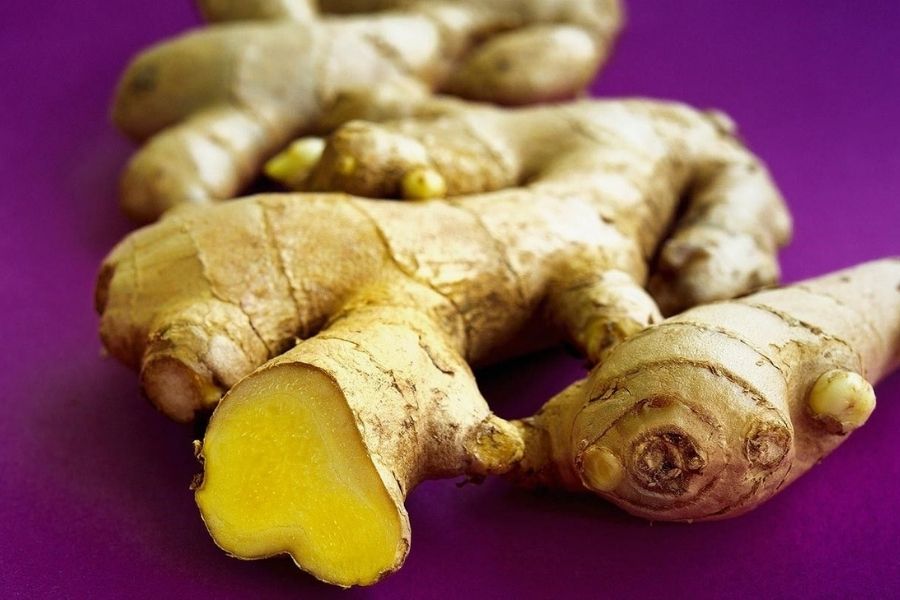
Ginger is a well-known remedy to treat nausea, vomiting, and diarrhea. Ginger has a strong phytochemical to prevent muscle spasms, fight infections, and prevent chills. Its therapeutic properties make it a quick remedy to provide essential nutrients to the body, aiding in a healthy digestion.
How To Use
You can directly chew the ginger pieces or add a piece of ginger in boiled water with some honey. You can also drink ginger tea.
4. Basil Leaves

Basil leaves are an excellent addition to home remedies for food poisoning. Fresh basil leaves have extraordinary antimicrobial properties to restrict the growth of bacteria. Its soothing effects calm the abdomen from the discomfort caused by food poisoning.
How To Use
Add two to three leaves to the boiling water. Simmer it once it cools down, sip it throughout the day. You can try drops of basil oil with water to relieve the symptoms of food poisoning.
5. Bananas
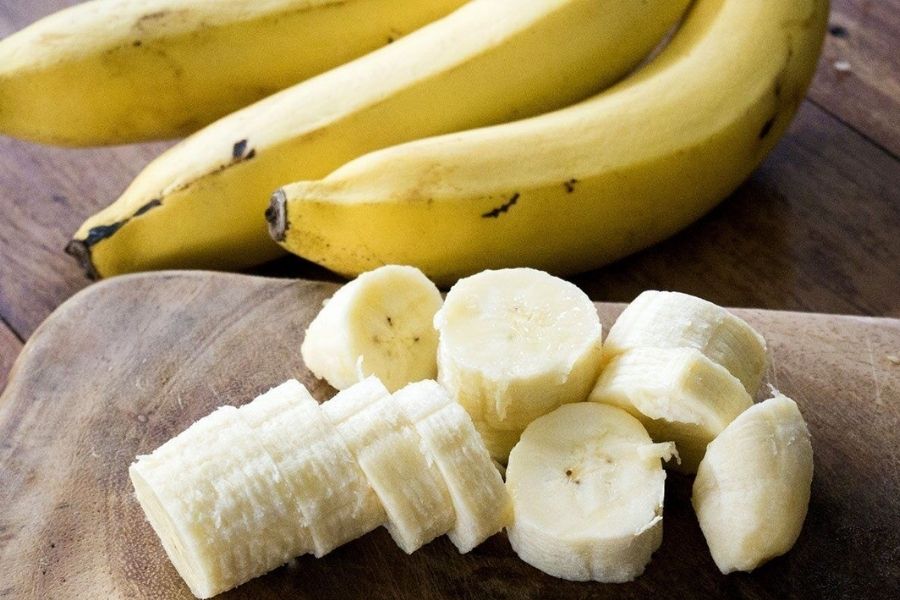
We don’t think of having a banana during food poisoning. Honestly, it works. It is easily digestible fruit and loaded with an incredible amount of potassium, helping you balance out lost electrolytes. Bananas provide you with the nutrients potassium and sodium necessary to maintain electrolyte levels.
6. Cumin
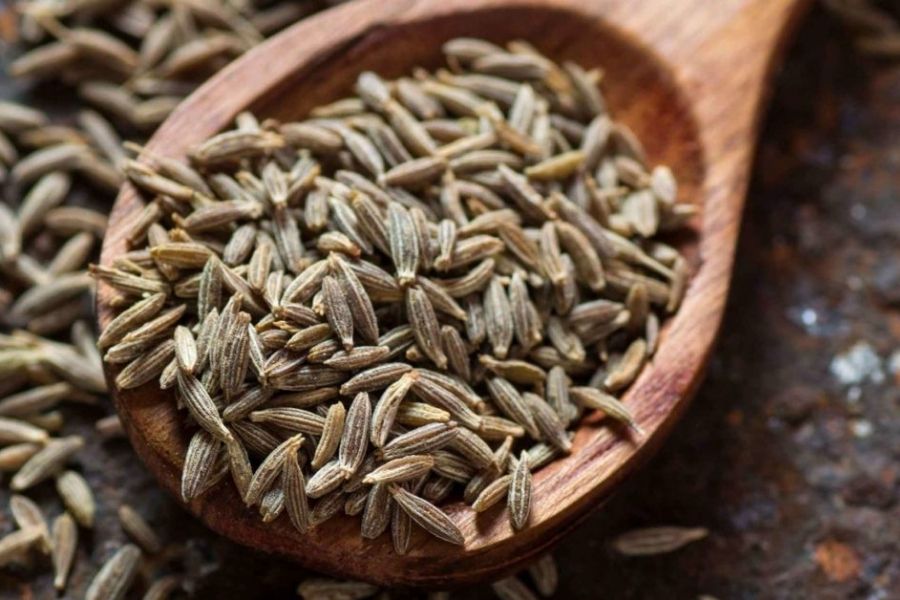
Cumin is the common spice found in everyone’s kitchen. Cumin oil has potent antimicrobial compounds that help to fight against infections. This instant effect of cumin relieves the abdomen from any discomfort and inflammation caused due to food poisoning.
How To Use
Either you can directly chew the few cumin seeds or swallow it with water. You can make tea by adding 1 cup of seeds to a boiling water cup and simmer it for 5 minutes, then sip it. Repeat it two to three times a day.
7. Lemon And Honey

People use this combined mixture early in the morning for weight loss. But we can try this remedy for abdominal issues too. Lemon and honey have antibacterial and anti-inflammatory properties to relieve the irritation of the abdominal problems. The acid present in lemon helps in killing the agent that causes food poisoning.
How To Use
Mix one teaspoon of lemon juice with honey and dilute it with warm water. Drink it two to three times throughout the day.
8. Fenugreek Seeds And Yoghurt
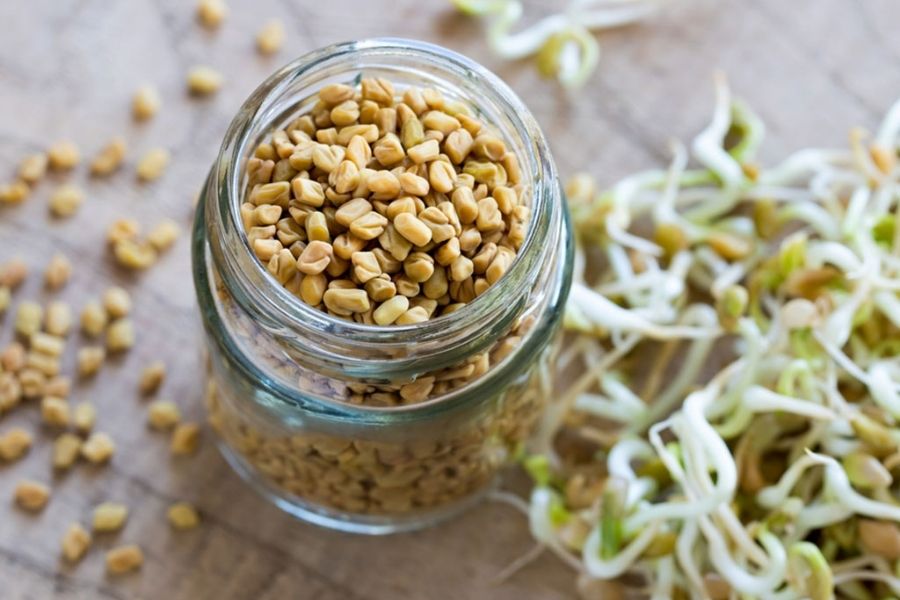
Combining these ingredients seems strange, but it is the fastest-acting remedy—this combination gains food poisoning, causes bacteria, and relieves abdominal discomfort and vomiting symptoms. Fenugreek seeds help promote digestion, while yogurt gives soothing effects.
How To Use
Add 1 tsp of fenugreek seeds to 1 tbsp of yogurt and just swallow this mixture. Follow this remedy twice or thrice a day till symptoms subside.
9. Self-medication
In most cases, food poisoning resolves within a few days. Remember to take plenty of rest. You can do self-medication—antibiotics like Amoxycillin, erythromycin, Azithromycin, Antidiarrhoeal loperamide, and Bismuth subsalicylate. But consult a doctor first. Diarrhea and vomiting are the symptoms of the toxins removal process.
In rare cases with severity, longer hospitalization is required to hydrate the body with IV fluid.







